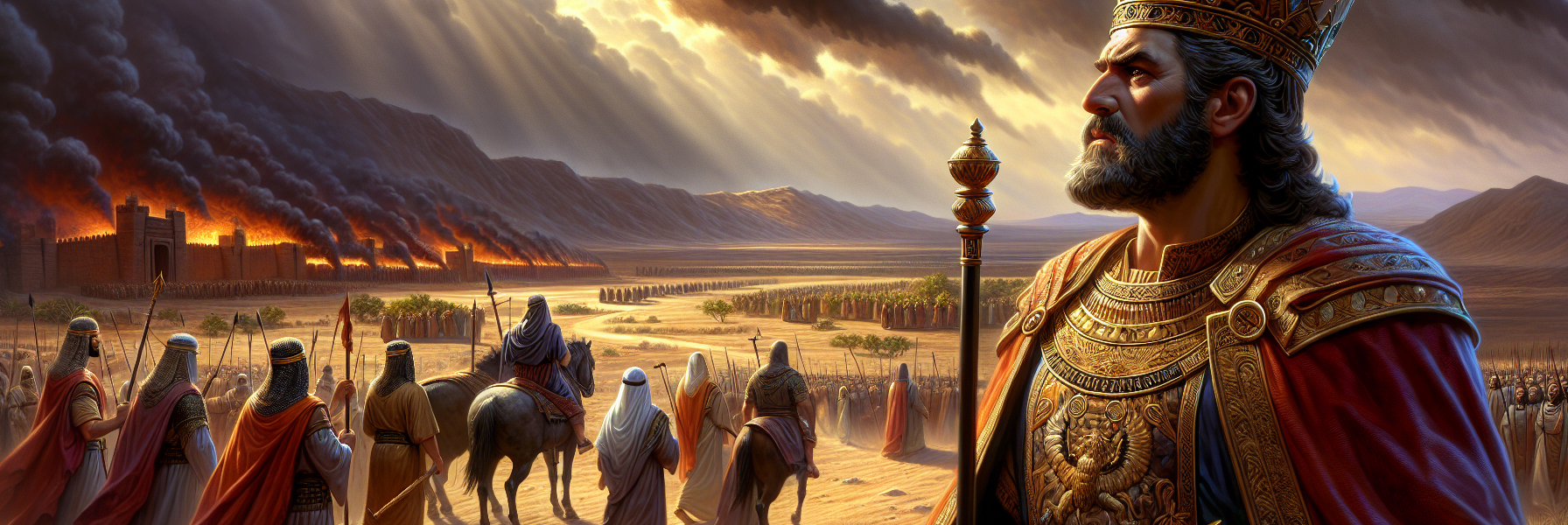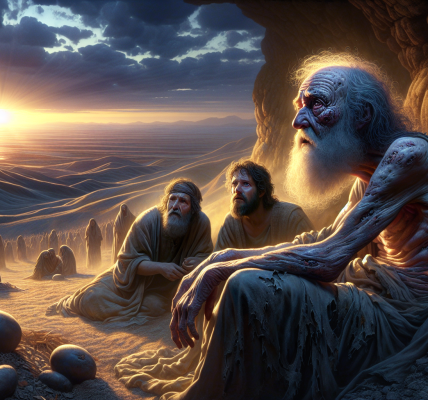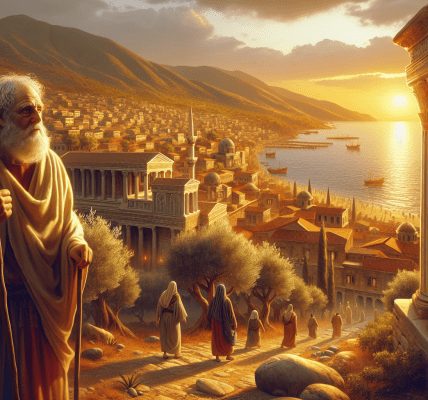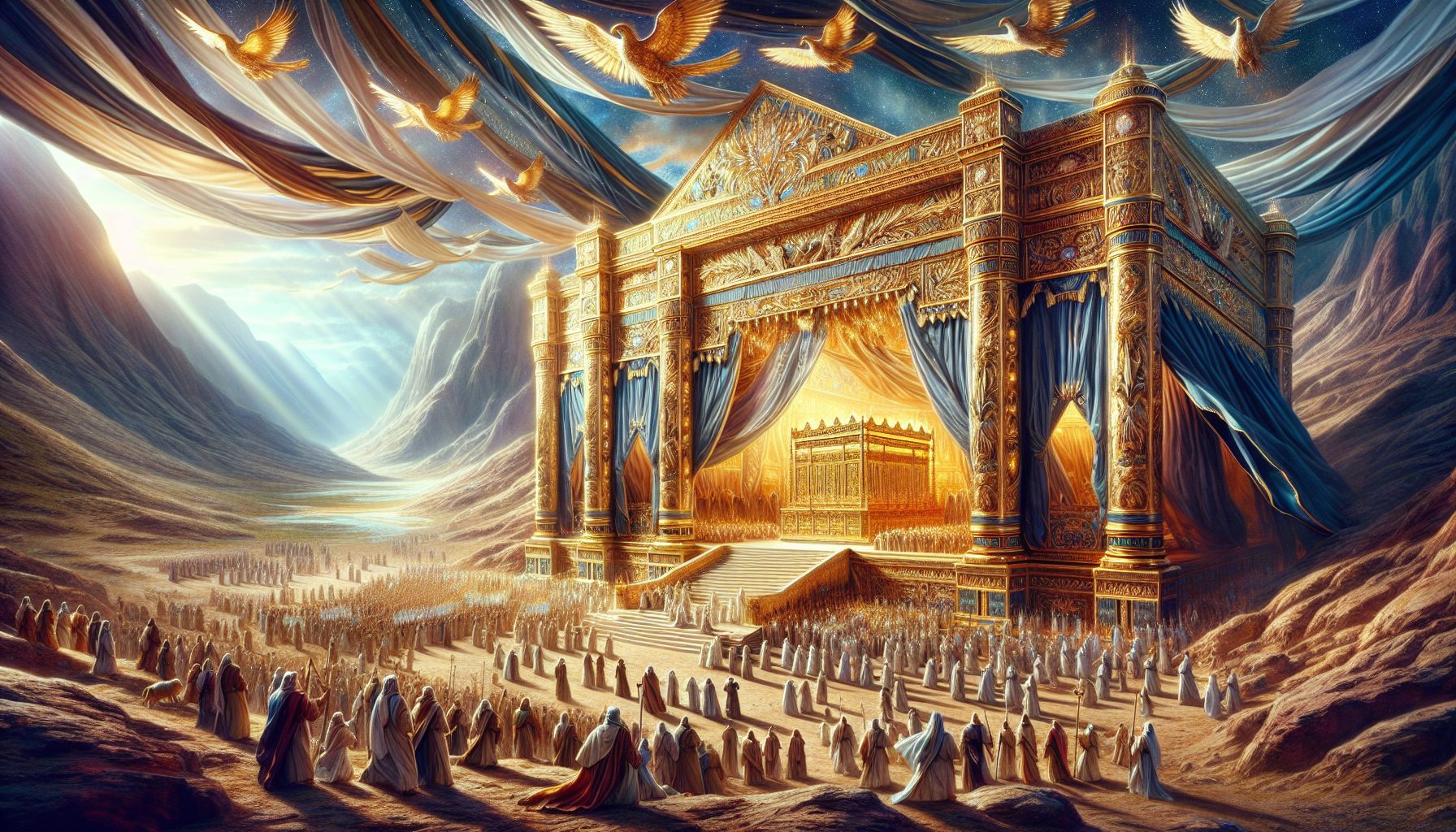**The Sin Offering: Atonement for Unintentional Wrongs**
The sun hung low over the wilderness, casting long shadows across the Israelite camp as the people went about their daily tasks. The Tabernacle stood at the center, its fine linen curtains fluttering in the breeze, the scent of incense lingering in the air. Inside, the golden lampstand flickered, illuminating the Holy Place where the priests served before the Lord.
Among the people was a man named Elkanah, a leader of his tribe, a man who sought to walk blamelessly before God. Yet on this day, a heaviness weighed upon his heart. Without realizing it, he had transgressed one of the Lord’s commandments—a sin committed in ignorance, but a sin nonetheless. The law of Moses was clear: even unintentional disobedience required atonement.
Troubled, Elkanah made his way to the Tabernacle, his sandals kicking up dust as he walked. He carried with him a young bull without blemish, its hide gleaming in the sunlight, its strength evident in its muscular frame. This was no ordinary sacrifice—this was a sin offering, ordained by God Himself in the laws given to Moses.
As he approached the bronze altar, the priests, clad in their linen garments, turned to meet him. Their faces were solemn, for they understood the gravity of the moment. Sin, even if committed unknowingly, separated man from the holiness of God. But the Lord, in His mercy, had provided a way for reconciliation.
Elkanah laid his hands upon the bull’s head, pressing firmly as he confessed his unintentional sin. The act was symbolic—a transfer of guilt, an acknowledgment that the innocent animal would bear the penalty in his place. The bull stood still, as if aware of its sacred purpose.
Then, with a swift and reverent motion, the priest took up the knife. The blade flashed in the sunlight before finding its mark. The bull’s lifeblood spilled into a basin, rich and crimson, a vivid reminder that without the shedding of blood, there could be no forgiveness. The priest dipped his finger into the blood and carried it into the Holy Place, stepping carefully past the veil that separated the outer chamber from the presence of God.
Seven times he sprinkled the blood before the Lord, before the curtain that veiled the Most Holy Place. Each droplet was a plea for mercy, a cry for cleansing. The remaining blood was poured out at the base of the bronze altar, where the fire burned perpetually, consuming the sacrifices offered to the Lord.
Next came the careful division of the bull’s body. The fat that covered the entrails, the kidneys, and the long lobe of the liver—these were the choicest parts, set apart for the Lord. The priest laid them upon the altar, where flames licked hungrily at the offering, sending plumes of smoke heavenward. The rest of the bull—its hide, its flesh, its offal—was carried outside the camp to a clean place, where it was burned in a fire that consumed even the ashes.
Elkanah watched in silence, his heart heavy yet hopeful. The ritual was complete. The sin he had not even known he committed was now atoned for, covered by the blood of the sacrifice. The Lord, just and merciful, had accepted the offering.
As the sun dipped below the horizon, casting the camp in hues of gold and purple, Elkanah turned toward his tent, his spirit lighter than before. The law was strict, but the grace behind it was profound. God had made a way for His people to return to Him, even when they stumbled in ignorance.
And so, the sin offering stood as a testament—not only to the seriousness of sin, but to the boundless mercy of a God who would not leave His people without a path to redemption.



